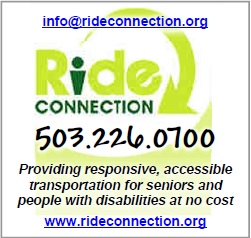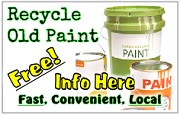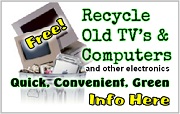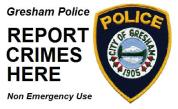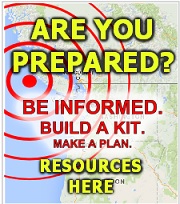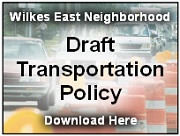Safely Dispose of Prescription Drugs, Gresham City Hall: Sep 25, 2010 1-5PM
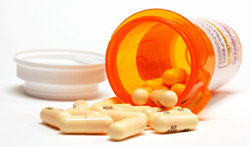 |
Take Advantage of this
|
When: Saturday, Sep 25, 1PM-5PM
Where: Gresham City Hall
1333 NW Eastman Pkwy
Gresham, OR
Get Map!
Safely Dispose of Prescription Drugs
Take Advantage of Fall Prescription Drug Collections and Empty Your Medicine Cabinets. If you have unused or expired prescription medicines in your home, you can dispose of them safely on Saturday, Sept. 25 from 1:00 p.m. to 5:00 p.m. at Gresham City Hall. Participants will empty their pill bottles into containers at the drop-off site. Liquid medication must stay in the prescription bottle. No intra-venous solutions, injectables, syringes or medical waste will be accept.
Keep Drugs Out of the Water Supply
Sometimes we forget the toilet is not a trash can. The City's Wastewater Services asks residents to help keep water sources clean by not flushing unused medications and personal care products down the toilet or sink. In one national study of 139 streams in 30 states, drugs were found in 80% of the samples. In the Potomac River, male fish were discovered producing eggs. While there is no evidence of risk to human health, these products contain compounds detected in trace amounts in aquatic systems even past the wastewater treatment plant. Read more...
Related content
Source: City of Gresham website
Prescription Drug Abuse on the Rise
Nearly 7 million Americans are abusing prescription drugs — more than the number who are abusing cocaine, heroin, hallucinogens, Ecstasy, and inhalants, combined. That 7 million was just 3.8 million in 2000, an 80 percent increase in just 6 years.
There has been a dramatic increase nationwide in the number of poisonings and even deaths associated with the abuse of prescription and over the counter drugs. Prescription drug abuse by teens and young adults is a serious problem in the United States. As reported in by The Partnership for a Drug Free America
More teens abuse prescription drugs than any other illicit drug other than marijuana. Teenagers age 12 to 17 are the fastest-growing group of prescription drug abusers. They arrange “pharm parties” where they swap drugs found in their homes.
- 1 in 5 teens has abused a prescription (Rx) pain medication
- 1 in 5 report abusing prescription stimulants and tranquilizers
- 3 in 5 teens say prescription pain relievers are easy to get from home medicine cabinets
Many teens think these drugs are safe because they have legitimate uses, but taking them without a prescription to get high or “self-medicate” can be as dangerous – and addictive – as using street narcotics and other illicit drugs.
Parents Can Reduce Access
Most teens who abuse prescription drugs obtain them primarily from friends and relatives — including their own home medicine cabinet. Parents can immediately reduce teen access to prescription drugs found in the home by disposing of them properly.
Dispose of Prescription Drugs Properly
Do not flush prescription drugs down the toilet or pour them down the drain unless the label or accompanying patient information specifically instructs you to do so. For information on drugs that should be flushed visit the FDA Web site.
- Take your prescription drugs out of their original containers.
- Mix drugs with an undesirable substance, such as cat litter, used coffee grounds, saw dust (or any material that mixes with the medication and makes it less appealing for pets and children to eat).
- Put this mixture into a disposable container with a lid, such as an empty margarine tub, or into a sealable bag.
- Remove or destroy any personal information, including Rx number, on the empty containers by covering it with black permanent marker or by scratching it off.
- Put the sealed container with the mixture in the trash; put empty drug containers in the recycling bin.
Resources
- FDA Consumer Health Information: How to Dispose of Unused Medicines
- Oregon Association of Clean Water Agencies
- Partnership for a Drug-Free America
- SMARxT Disposal
"Prescription drug collection events are a safe, monitored and no-cost method for people to eliminate the risk that unwanted prescription drugs pose to our families, our communities and the environment," said Roger Springman, drug collection program manager.
"Medications should remain in their original containers so pharmacists assisting with the collection can identify and classify the drugs for disposal," Springman said. "We recommend that you contact your local event coordinator to find out details of what items will be accepted and other collection guidelines."


